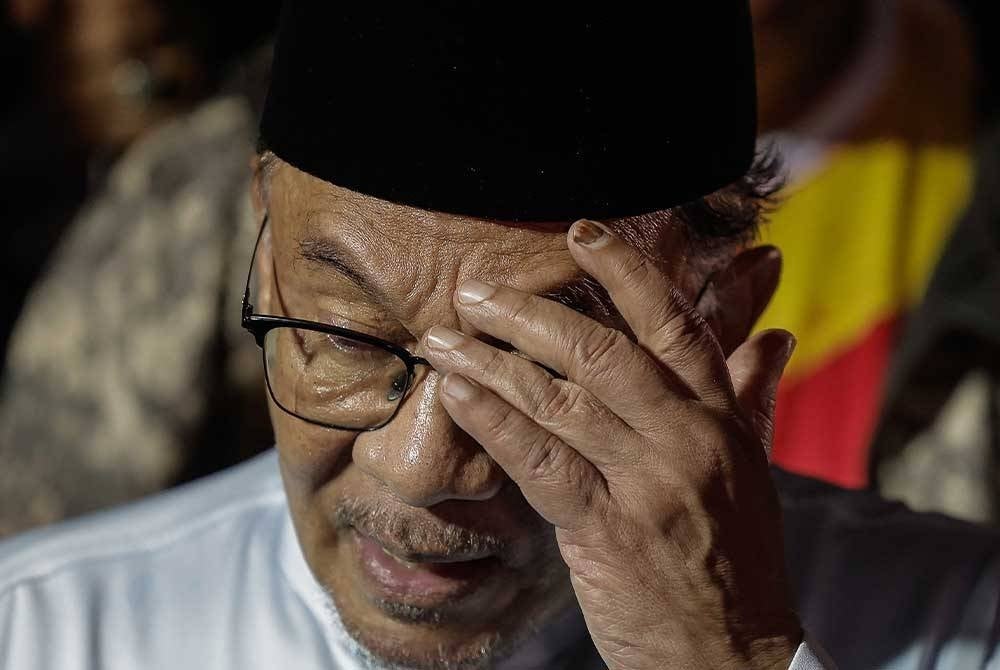The show of hands and the red tape that tells a lot about Anwar's support

Tomorrow will be a big day for Prime Minister Datuk Seri Anwar Ibrahim.
If no woe betides and he gets his second stamp of approval to lead the country, it will put an end to those questioning the legitimacy of his contentious government.
One can quibble whether he truly has the numbers to win tomorrow’s vote of confidence, but the fact remains that the Monday show of hands is, essentially and constitutionally, unnecessary.
“He doesn’t need to do it,” remarked lawyer Fahri Azzat.
“Him being recognised by the Agong as the person who commands the confidence of the majority of the members of house has already validated his position,” he continued.
And because the Yang di-Pertuan Agong has determined as such, Fahri said that Anwar’s bid for a second mandate in Parliament was needless.
Constitutional expert, Professor Datuk Shamrahayu Abdul Aziz also chimed in and seconded the superfluousness of tomorrow’s vote of confidence against Anwar in the Dewan Rakyat.
“The provisions of the Federal Constitution have been followed. That is sufficient, so it is not necessary for the prime minister (PM) to redo the confidence in the Dewan Rakyat,” she explained.
She recalled, even the previous PM – Datuk Seri Ismail Sabri – did not undergo a vote of confidence following his appointment by the Agong despite a subsequent royal decree remarking that it should be done the soonest parliament comes to session.
“Maybe, the current PM wants to show to the people that he indeed commands the confidence of the majority in the Dewan Rakyat,” reasoned the law lecturer from International Islamic University if Malaysia.
Perhaps, Shamrahayu was correct as any politically savvy Malaysian can attest that Anwar has never been one to shy from staging good theatrics.
And to receive the majority yae in the Dewan Rakyat, after his coalition failed to win a simple majority in the national poll, would be a too tempting of an optic for Anwar to resist and let pass.
However, the Federal Constitution is ambiguous on how a vote of confidence should be done.
It only mentions the requirement to be PM in which the prerequisites are: (1) to be a member of the Dewan Rakyat and (2) to have the confidence of the majority in the Dewan Rakyat.
“Although the word ‘confidence’ is mentioned; the Federal Constitution neither defines nor provides any procedure for a vote of confidence. There is no substantive mention about it in the constitution,” Shamrahayu explained.
Inadvertently, this meant that the Speaker of the Dewan Rakyat get to decide on how to go about such a poll.
And while a victory through a secret ballot would further bolster Anwar’s legitimacy, as such method can forestall attempts of intimidation, blackmailing and vote buying, Fahri believed that the voting will likely be more visible.
“I think the vote will take place by a show of hands. I think that would the most democratic and transparent way of demonstrating it,” Fahri remarked.
But assuming if Anwar loses; does this inadvertently means that the Agong had erred in his judgement?
“First of all, if that happens, it shows that there is still all these shifting of alliances at the back,” Fahri posited. “And this support cannot be counted on.”
“You go and say one thing before the Agong and then when you get into parliament, you do something else. You can’t really say the Agong made an error because he relied on whatever representation made at the palace [when appointing Anwar],” Fahri argued.
As it is, Anwar seems poised to win the vote of confidence.
Even more so with the signing of a memorandum of understanding (MoU), that basically said that any government MP who does not vote for Anwar shall be deemed as having resigned as an MP.
Now this is peculiar because unlike a memorandum of agreement (MoA); an MoU is not enforceable by law.
Also, there are no clauses in Article 48 of the Federal Constitution – which deals on disqualification of MPs – that state that any government MP who voted against motions tabled by the ruling bloc will effectively lose their seats.
In fact, the anti-party hopping law is also silent on MPs who – in the context of tomorrow’s vote of confidence – contradicts their party’s decision and say nay to Anwar.
“It only covers those who resign from one party to join another or those who purposely let their party membership expire with the intent to join another party,” Fahri explained.
“The act only focusses on party hopping; not so much about the changing of views of MPs as member in a political party,” he added.
Shamrahayu also echoed a similar contention, arguing that MPs should be given the liberty and freedom to support any motion tabled in the Dewan Rakyat.
“I interpret Article 43(2)(b) as to say that the act of giving support in the Dewan Rakyat is the rights of an MP; not the rights of a political party,” she stressed.
Regardless of the legality of it, this, seemingly coercive, fail-safe which has been put up for Anwar speaks volumes on the government’s commitment towards freedom of expression.
Ostensibly, it also allows us to get a glimpse of how truly confident Anwar is over his current support in parliament.












